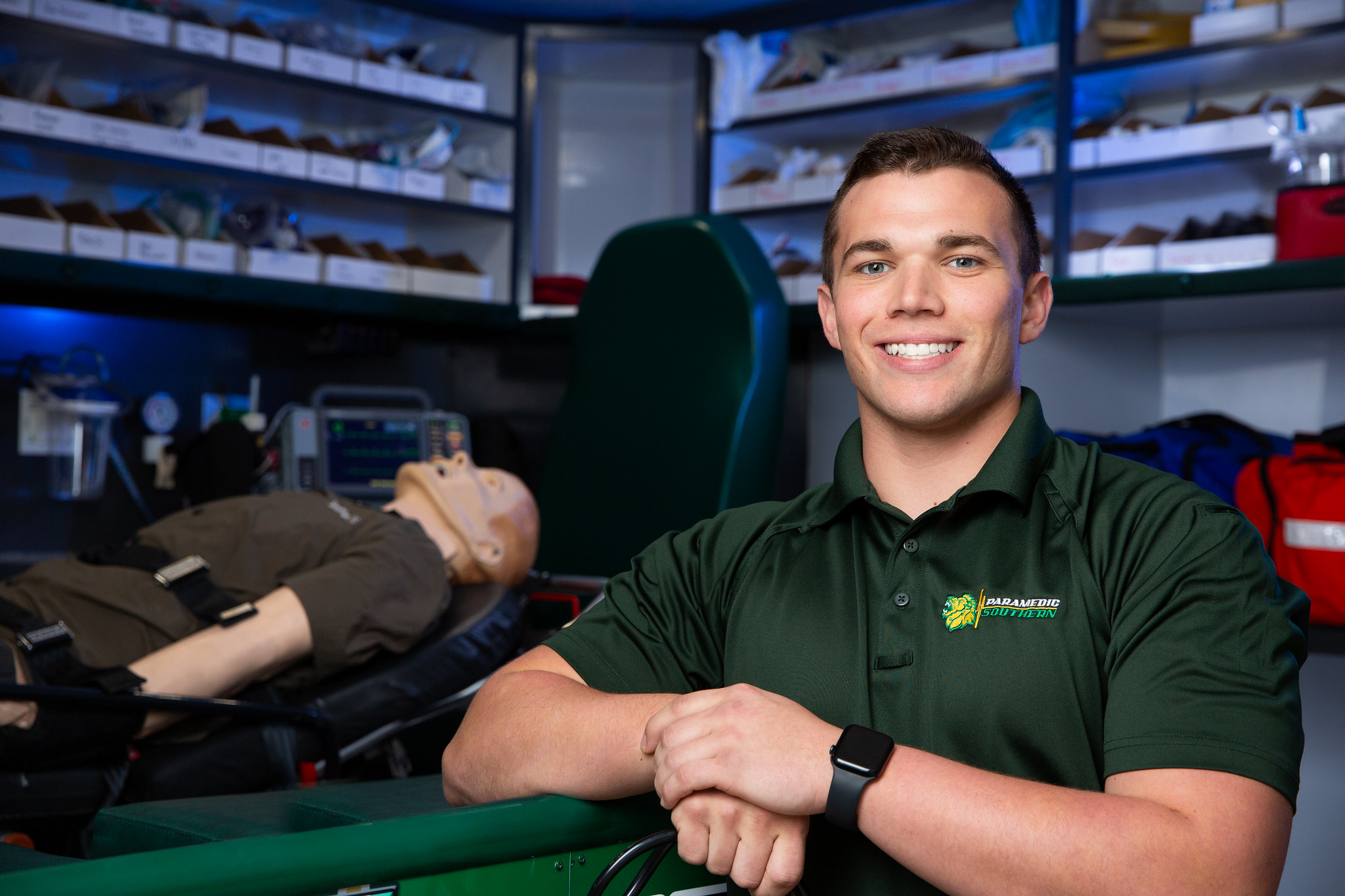
The Missouri Southern State University Paramedic Program is accredited by the Commission on Accreditation of Allied Health Education Programs (www.caahep.org) upon the recommendation of the Committee on Accreditation of Educational Programs for the Emergency Medical Services Professions (CoAEMSP).
Commission on Accreditation of Allied Health Education Programs
25400 US Highway 19 N., Suite 158
Clearwater, FL 33763
727.210.2350
www.caahep.org
To contact CoAEMSP:
8301 Lakeview Parkway, Suite 111-312
Rowlett, TX 75088
Phone: 241.703.8445
Fax: 214.703.8992
www.coaemsp.org
2014 81%
2015 72%
2016 94%
2017 94%
2018 100%
2019 88%
2020 66%
2021 100%
2022 76%
2023 83%
2024 79%
Year Program
2014 86%
2015 92%
2016 86%
2017 79%
2018 75%
2019 83%
2020 (*Covid) 50%
2021 50%
2024 91%
2014 100%
2015 100%
2016 100%
2017 100%
2018 100%
2019 100%
2020 100%
2021 100%
Emergency Medical Technician - Paramedic
To prepare Paramedics who are competent in the cognitive (knowledge), psychomotor (skills), and affective (behavior) learning domains to enter the profession.
The goals of the Emergency Medical Services program are to provide clinically competent, entry-level practitioners with the communication skills needed for communication with patients and other healthcare providers. By the time you complete the program, you will have developed critical thinking and problem solving abilities in the work environment, and will be able to demonstrate the ability to handle on the job challenges. Your personal behavior will be consistent with employer expectations, and you will have the empathy required to serve as a patient advocate.
EMS is a young, ever changing profession. As the field advances through research and technology, practitioners must reexamine practices and redefine new ways to administer emergency medical services. Additionally, EMS leaders and managers are constantly adapting and re-adapting to new polices, regulations, standards of care, and human resource challenges, which requires the use of advanced analytical, rhetorical, and research skills. Moreover, there is increasing pressure for EMS chiefs and executives to hold a Masters in Public Administration, Public Health, or Business Administration. With a Bachelor of Science in Health Science-Paramedic, aspiring EMS leaders will be poised to take lead and/or earn their master’s degree.